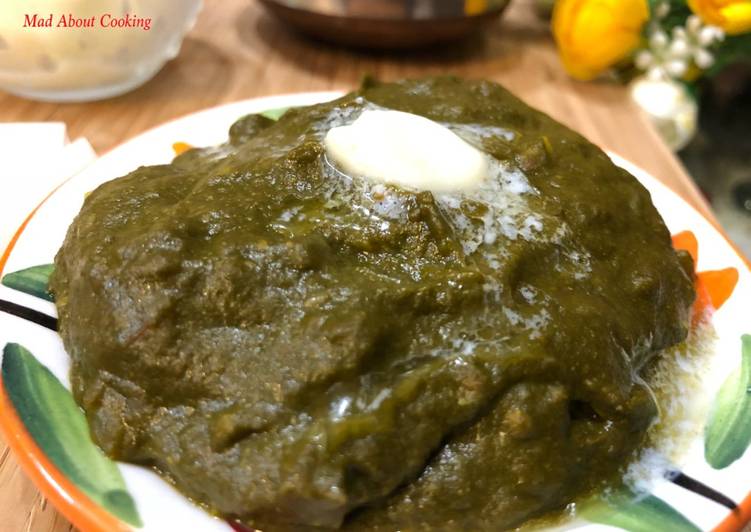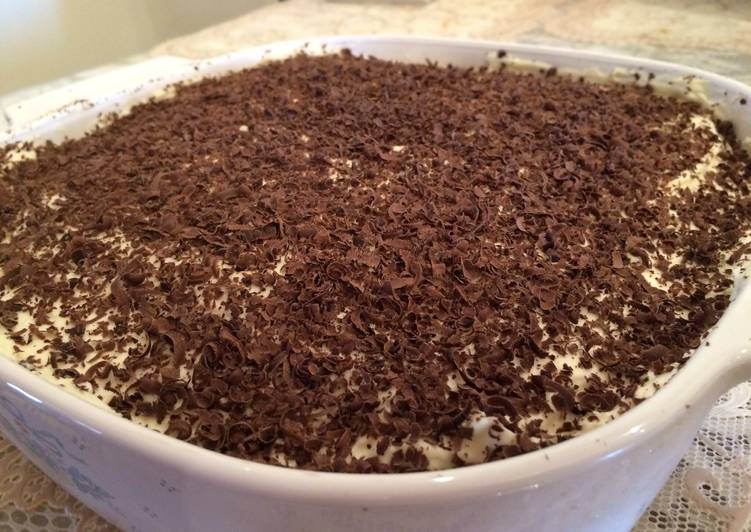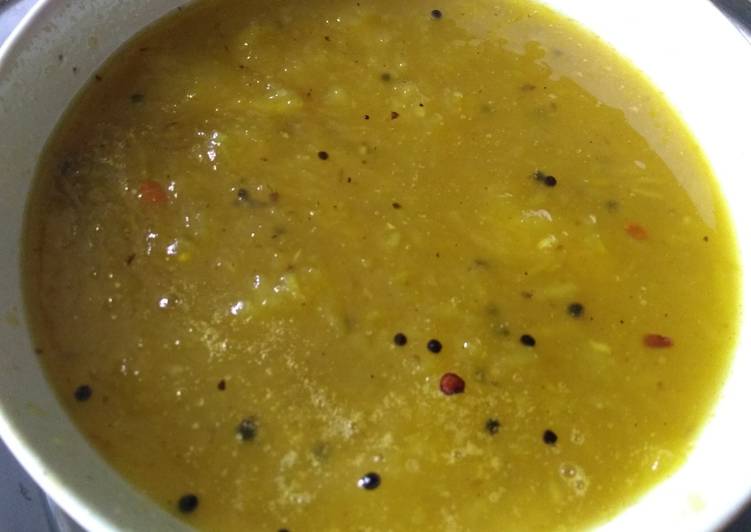
Hey everyone, it is me again, Dan, welcome to my recipe site. Today, I will show you a way to prepare a distinctive dish, sarso ka saag – winter recipe. It is one of my favorites food recipes. This time, I am going to make it a little bit unique. This will be really delicious.
Sarson ka Saag Recipe with step by step photos. Winter is the time when the mustard and Bathua are available in India. Hence during this season, sarson ka saag is always made in the homes and hearths of north India, especially in Punjab from where this traditional recipe comes from.
Sarso Ka Saag – Winter Recipe is one of the most popular of current trending meals on earth. It is simple, it is fast, it tastes delicious. It is enjoyed by millions daily. They’re fine and they look wonderful. Sarso Ka Saag – Winter Recipe is something which I’ve loved my entire life.
To begin with this particular recipe, we must prepare a few components. You can have sarso ka saag – winter recipe using 16 ingredients and 3 steps. Here is how you cook it.
The ingredients needed to make Sarso Ka Saag – Winter Recipe:
- Make ready Green Leafy Vegetable
- Make ready 250 gm Mustard leaves
- Prepare 200 gms Spinach
- Get 100 gm Fenugreek Leaves
- Prepare Masala Ingredients
- Prepare 1onion Finely chopped onion
- Prepare 2 Finely chopped tomato
- Take 2 tbsp Finely chopped garlic
- Prepare 1 inch Finely chopped ginger
- Get 1 Finely chopped green chilli
- Get 3 tbsp Maize flour
- Get 2 tbsp Mustard oil
- Make ready 1 tsp Cumin
- Prepare 1/2 tsp Red chilli powder
- Make ready 1 tsp Coriander powder
- Get to taste Salt
The most important greens for this recipe is the sarson, also known as mustard. I sometimes combine it along with spinach and methi as well or. In this recipe, sarson ki bhaji which means green mustard leaves in English, bathua leaves and spinach leaves are cooked together with tomato, ginger, garlic, green chili and corn flour and then crushed into. Punjabi sarson ka saag is mostly made and relished in winters as mustard leaves are easily available during winters.
Steps to make Sarso Ka Saag – Winter Recipe:
- Clean all green leafy vegetables, remove stalk and separate the leaves from it. Wash the leaves thoroughly with water, drain out the excess water and chop the leaves finely. - Now add all chopped green leafy vegetables in a pressure cooker with 1/2 cup of water. Close the lid and cook until one whistle. After it simmers once, turns off the flame and let the steam escape on it's own. - Heat mustard oil in a pan on low flame and add cumin. Allow it to crackle.
- Then add chopped onions and sauté on a medium flame until translucent. Now add ginger, garlic, green chilli and cook for 5 minutes on the medium-low flame. - Add coriander powder, red chilli powder, tomato puree and cook until masala leaves oil. - At this stage add maize flour and stir constantly to roast.
- Open the lid of pressure cooker and mash the boiled green leafy vegetables with a ladle or spoon. - Now add mashed green leafy vegetables and salt into the cooked masala. Mix them well. - Now add 1 cup water and cook on low flame for 10 to 12 minutes. Do stir the sabzi after every 1 to 2 minutes. - Garnish with homemade white butter and serve.
Sarson ka saag is best enjoyed in winters as quality of the ingredients is better To make Jain sarso ka saag simply, skip both garlic and onion from the recipe and proceed with the rest. A winter speciality from the North Indian State of Punjab, this sabzi is made with a mix of wilted mustard and other greens. The saag and roti combo is only complete with a generous amount of desi ghee. This sarson ka saag recipe is the one I have grown up eating so I urge you to try it as soon as. Sarson Ka Saag - Indeed a magical winter dish!
So that’s going to wrap this up with this special food sarso ka saag – winter recipe recipe. Thanks so much for your time. I’m confident you will make this at home. There’s gonna be more interesting food at home recipes coming up. Don’t forget to bookmark this page in your browser, and share it to your family, friends and colleague. Thank you for reading. Go on get cooking!


